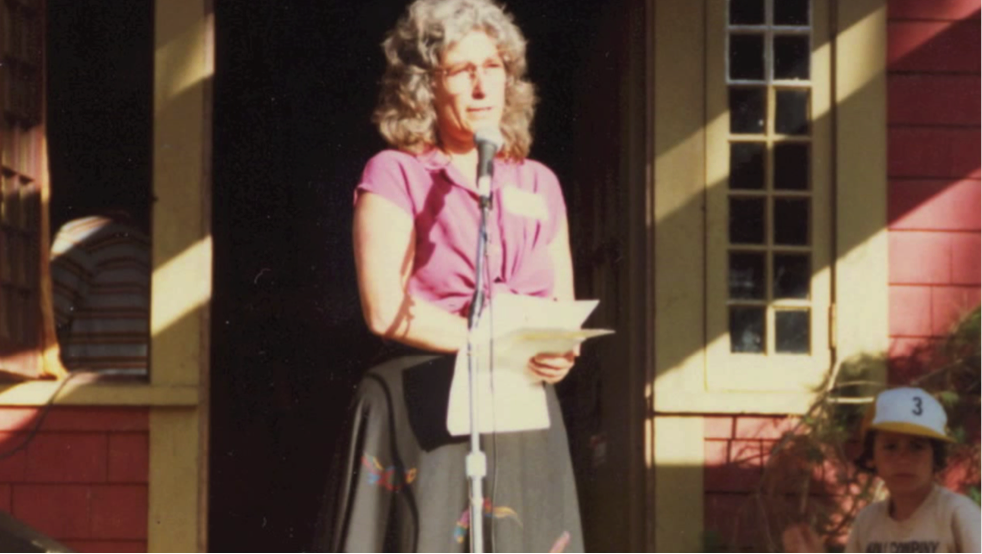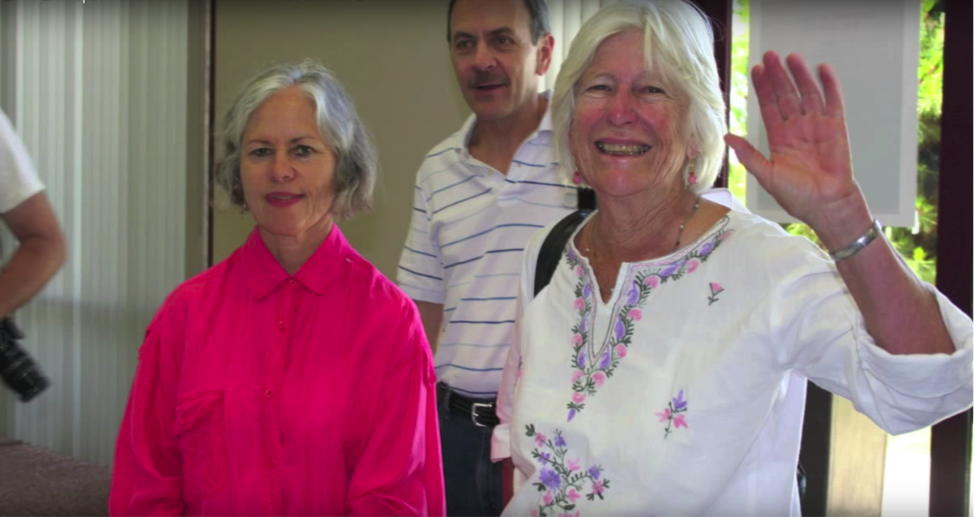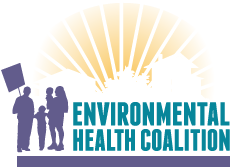
“Ruth Heifetz is really the mother of Environmental Health Coalition. Without Ruth, there would not have been an Environmental Health Coalition. When I think about it, Ruth really changed my life.” – Diane Takvorian
Ruth Heifetz is a co-founder of Environmental Health Coalition and has been a member of the board of directors for 35 years. She is an educator, a doctor and an endless supporter of environmental justice and public health.
We asked her perspective on the organizations transition over 35 years of fighting for environmental justice in the region. Here is a bit of history from Ruth.
What is your relationship with EHC?
I was involved from the very beginning, back when we used to meet at Diane’s house and then operated out of a small storefront that has since been converted to an art gallery or something much more hip. I had been working with the San Diego Committee of Occupational Safety and Health and this was the opportunity to merge occupational health and environmental issues.
It's funny, I can't recall the “ah-ha!” moment when Diane and I first met, but it was due to the work we were both part of, and it clearly happened for a reason.
How has your role at EHC evolved over the past 35 years?

It’s not so much that my role has changed, but the issues EHC works on have grown and changed.
Our first real action, as I recall it, was related to an empty lot in Southeastern San Diego where toxic waste had been dumped in a residential area. Some of the people who lived there were overcome by the fumes- there was no doubt that it was really toxic. No one really did much about it.
So we went to the County Health Department and kept insisting they do something about it and find out what the toxins were. Slowly and reluctantly - because it was a public health problem – the health department began trying to figure out what was wrong.
This was the beginning of one of our earliest themes, which was the right to know. There had been worker right to know laws, but we wanted to have a community right to know law so people could know what was being produced in the factory next door, or dumped in the vacant lot on their street.
We became one of the first counties to have a community right to know law and this was an extremely important thing. We changed the existing situation and out of that, and out of our leadership in the community, the County Health Department developed its own department of environmental health, and a number of us sat on the early advisory committee for that.
What stands out as a great accomplishment in the last 35 years?
We have many to choose from, but I think one of our greatest accomplishments is the training of our promotoras and the community leaders born from our leadership programs. The first promotora program focused on toxins in the home. This concept grew beyond the home and eventually into the community, where we continue to develop advocates today. I guess I’m just very inspired by that program.
I remember the first group of women who came to our first promotora training. They were leaders in their own community but weren't used to advocating. During our first session, we tried to get each of the women to introduce themselves and they were so shy they couldn't even speak in front of each other. At the end of the ten weeks, nothing could hold them back. You saw this transformation of people developing confidence and becoming even greater leaders in their communities.
EHC has moved with the issues and the concerns but we've always stayed within the environmental justice realm and always stayed within the community.
What do you think is EHC’s biggest strength?
I think the amazing success of EHC has to be attributed to the people who have been involved. One of our strengths is that a number of staff and some of our organizers and volunteers have been around for a very long time, including myself. In most organizations people come and go but EHC still has its founding members doing work in the community.
I also think Diane is quite amazing. With her skills and what she's accomplished she clearly could have moved on to a national level, but she's such a dedicated grassroots person. We've been incredibly fortunate to have that sustained leadership.
How would you describe EHC to another person?
To me, it would depend a lot on that person. Right now, the issue of climate change is so crucial, so I would try and get them interested in that aspect of our work. I would let them know that the people most impacted by climate change are the people we largely work with; the poorest people and the people with least resources.
In general, I would tell someone interested in EHC that we work in communities where people and toxics mix in an unhealthy way and that our work makes communities safe for people to live, work and play.
To donate to EHC, please click here.
To watch a video honoring Ruth’s contributions to EHC and the community, please click here.

